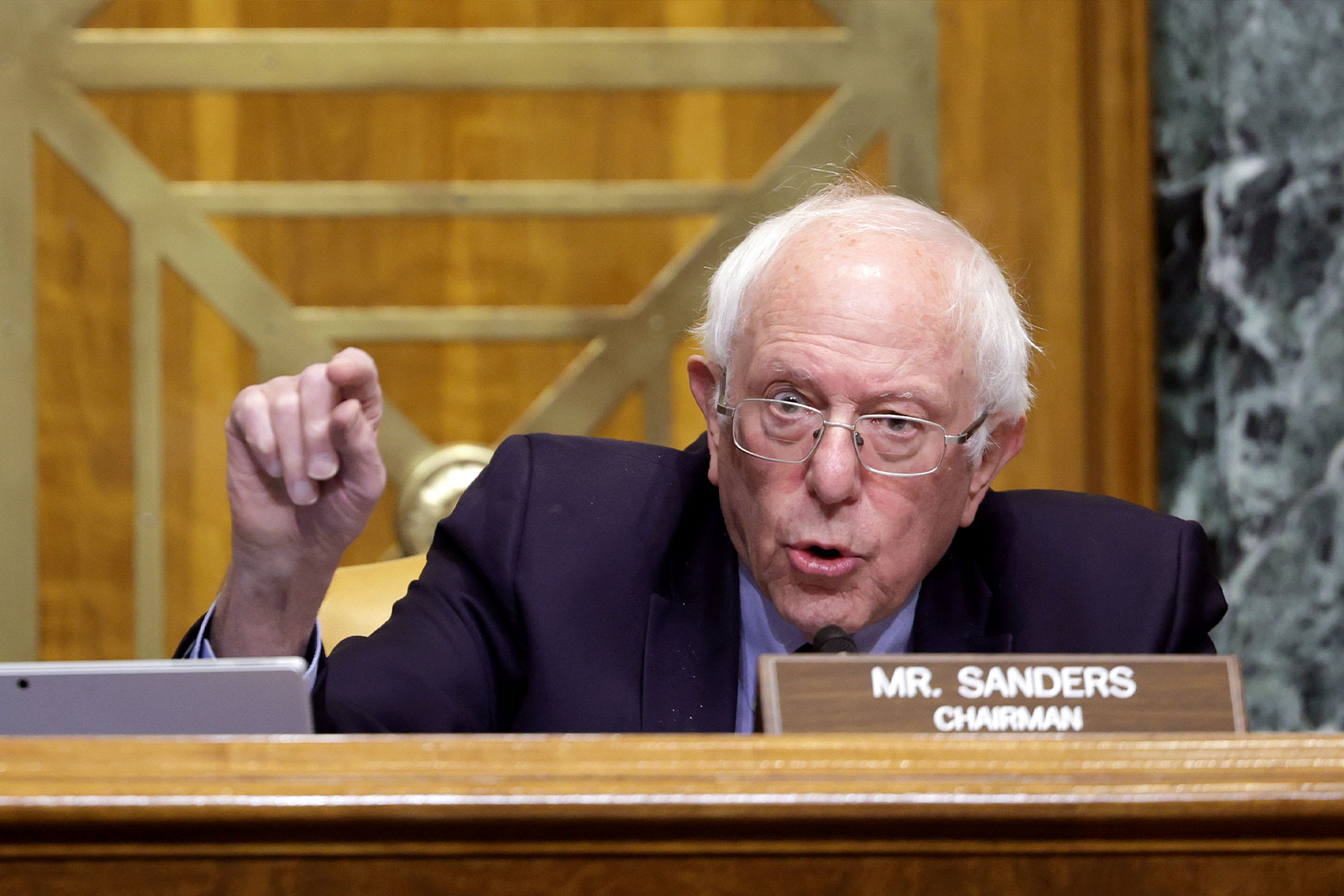
Sen. Bernie Sanders announced this week that he will soon introduce legislation to set the minimum annual salary for U.S. public school teachers at $60,000, a change the senator said could be fully financed with progressive changes to the estate tax.
At a town hall with educators and union leaders, Sanders called low teacher pay a national "crisis" that has gotten substantially worse during the coronavirus pandemic, which has placed massive additional strain on school staff across the country.
A survey released last year by the National Education Association (NEA) found that 55% of U.S. educators are considering leaving the profession earlier than they had planned, citing pandemic-related stress and burnout as well as inadequate pay.
"In America today, hundreds of thousands of public school teachers are forced to work two or three jobs during the school year. Maybe they are driving an Uber. Maybe they are waiting on tables. Maybe they are parking cars," Sanders said. "In the richest country in the history of the world, we have got to do better than that. It is time to end the international embarrassment of America ranking 29th out of 30 countries in the pay middle school teachers receive."
The Vermont senator, who chairs the upper chamber's Health, Education, Labor, and Pensions Committee, said his Pay Teachers Act would "triple" funding for low-income schools, "ensure all starting teachers across the country are paid at least $60,000 a year," and boost the salaries of those "who have made teaching their profession—working on the job for 10, 20, 30 years."
As Education Week noted Tuesday, the average starting salary for U.S. teachers is less than $42,000 a year. Sanders said during the town hall that "43% of all teachers in America make less than $60,000 a year."
Increase teacher pay to a minimum of $60,000 a year. pic.twitter.com/TklJaasZbc
— Bernie Sanders (@SenSanders) February 15, 2023
Sanders estimated that his legislation would cost $450 billion over the next decade, exactly how much his proposed estate tax overhaul would raise. The bill, titled the For the 99.5 Percent Act, would impose a 65% top tax rate on estates worth more than $1 billion and reduce the estate tax exemption to $3.5 million, down from around $13 million.
"If we can provide over a trillion dollars in tax breaks to the top 1% and large corporations, please don't tell me that we cannot afford to make sure that every teacher in America is paid at least $60,000 a year," the senator said. "If we can spend close to $900 billion last year on the military, more than the next 11 nations combined, please don't tell me that we cannot make sure that every teacher in America is treated with dignity and respect."
According to recent research from the Economic Policy Institute (EPI), "teachers are paid less (in weekly wages and total compensation) than their nonteacher college-educated counterparts, and the situation has worsened considerably over time"—a gap that has been dubbed the "teacher pay penalty."
"The average weekly wages of public school teachers (adjusted only for inflation) increased just $29 from 1996 to 2021, from $1,319 to $1,348 (in 2021 dollars)," EPI found. "In contrast, inflation-adjusted weekly wages of other college graduates rose from $1,564 to $2,009 over the same period—a $445 increase."
EPI stressed that "providing teachers with compensation commensurate with that of other similarly educated professionals is not simply a matter of fairness but is necessary to improve educational outcomes and foster future economic stability of workers, their families, and communities across the U.S."—a point Sanders echoed during his town hall address.
"Raising teacher salaries to at least $60,000 a year and ensuring competitive pay for all of our teachers," Sanders argued, "is one of the most important steps we can take to address the teacher shortage in America and to improve the quality of our public school systems."





